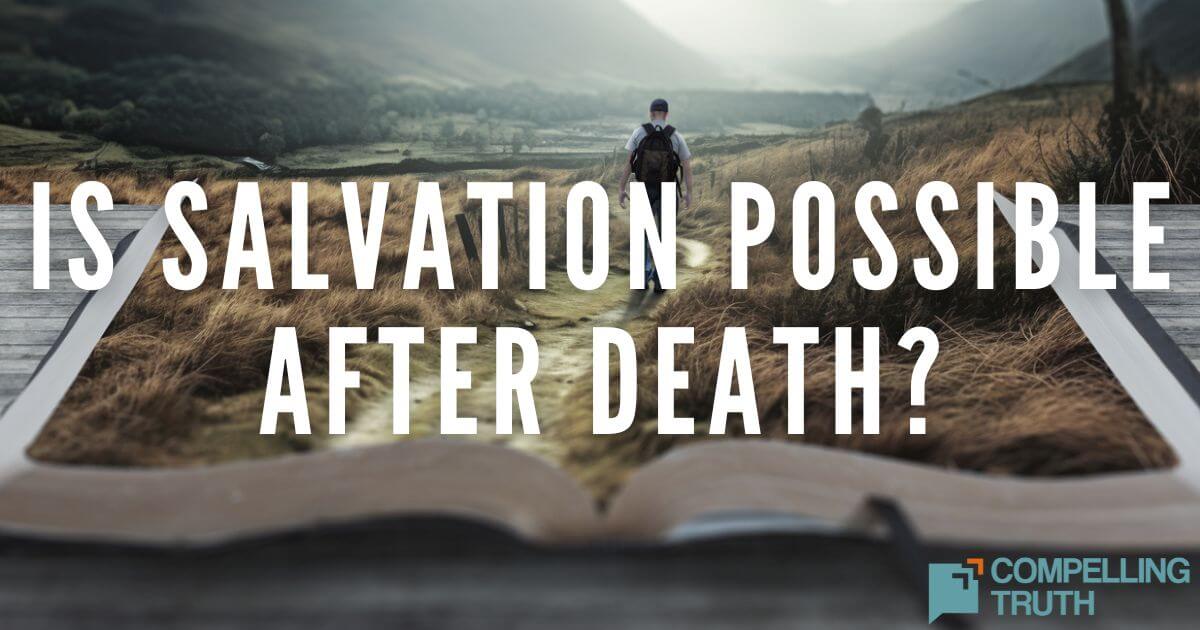According to the Bible, death is not the end of life but the separation of the soul from the body. Scripture clearly speaks of both eternal life with God in heaven and eternal separation from God in hell.
Death is the result of sin. Romans 6:23 directly states, "For the wages of sin is death." Every person dies physically, because all have sinned (Romans 5:12). Following death is a time of reckoning: "it is appointed for man to die once, and after that comes judgment" (Hebrews 9:27). Thus, there is no reincarnation as taught in Eastern religions. Death entered the world with Adam's sin (Romans 5:12), as shown in the fact that Adam died (Genesis 5:5).
Even Jesus endured physical death (Matthew 27:50), making Him like all other humans. The difference was that Jesus had no sin and therefore did not deserve death. Jesus defeated death through His resurrection on the third day, proving Himself to be the Savior (1 Corinthians 15:3-11). Because of Christ's work, death has been defeated, and the Christian can ask, "O death, where is your victory? O death, where is your sting?" (1 Corinthians 15:55).
The Bible also speaks of spiritual death, the state of being separated from God. People can be alive physically yet dead spiritually. The solution to spiritual death is to be born again. Jesus spoke of the necessity of the new birth in John 3 and offered eternal life to those who believe: "God so loved the world, that he gave his only Son, that whoever believes in him should not perish but have eternal life" (John 3:16).
Those who trust Christ for salvation have been set free "from the law of sin and death" (Romans 8:2). Death has been defeated in the life of the believer. The Christian lives in confident anticipation of eternal life: "We know that we have passed out of death into life" (1 John 3:14).
So, our gracious God has exchanged our spiritual death for eternal life. Romans 6:13 says, "present yourselves to God as those who have been brought from death to life, and your members to God as instruments for righteousness."
The New Testament often refers to the believer's death as "sleep." For this reason, early Christians called their burial places "cemeteries" (Greek koimeteria) which literally meant "dormitories" or "sleeping places." First Thessalonians 5:9-10 teaches, "For God has not destined us for wrath, but to obtain salvation through our Lord Jesus Christ, who died for us so that whether we are awake or asleep we might live with him" (see also 1 Corinthians 15:51). Christ has defeated death, and so Christians "sleep" upon the end of this life. They truly "rest in peace."
While a believer's body is in the grave, awaiting resurrection, his spirit is in the presence of the Lord (2 Corinthians 5:8). An unbeliever, on the other hand, dies twice: at physical death, his body is interred, and what follows is an eternal separation from God, called "the second death" in Revelation 21:8. How different from the eternal destiny of those in Christ! Philippians 3:20-21 says, "our citizenship is in heaven, and from it we await a Savior, the Lord Jesus Christ, who will transform our lowly body to be like his glorious body."
Death is the result of sin. Romans 6:23 directly states, "For the wages of sin is death." Every person dies physically, because all have sinned (Romans 5:12). Following death is a time of reckoning: "it is appointed for man to die once, and after that comes judgment" (Hebrews 9:27). Thus, there is no reincarnation as taught in Eastern religions. Death entered the world with Adam's sin (Romans 5:12), as shown in the fact that Adam died (Genesis 5:5).
Even Jesus endured physical death (Matthew 27:50), making Him like all other humans. The difference was that Jesus had no sin and therefore did not deserve death. Jesus defeated death through His resurrection on the third day, proving Himself to be the Savior (1 Corinthians 15:3-11). Because of Christ's work, death has been defeated, and the Christian can ask, "O death, where is your victory? O death, where is your sting?" (1 Corinthians 15:55).
The Bible also speaks of spiritual death, the state of being separated from God. People can be alive physically yet dead spiritually. The solution to spiritual death is to be born again. Jesus spoke of the necessity of the new birth in John 3 and offered eternal life to those who believe: "God so loved the world, that he gave his only Son, that whoever believes in him should not perish but have eternal life" (John 3:16).
Those who trust Christ for salvation have been set free "from the law of sin and death" (Romans 8:2). Death has been defeated in the life of the believer. The Christian lives in confident anticipation of eternal life: "We know that we have passed out of death into life" (1 John 3:14).
So, our gracious God has exchanged our spiritual death for eternal life. Romans 6:13 says, "present yourselves to God as those who have been brought from death to life, and your members to God as instruments for righteousness."
The New Testament often refers to the believer's death as "sleep." For this reason, early Christians called their burial places "cemeteries" (Greek koimeteria) which literally meant "dormitories" or "sleeping places." First Thessalonians 5:9-10 teaches, "For God has not destined us for wrath, but to obtain salvation through our Lord Jesus Christ, who died for us so that whether we are awake or asleep we might live with him" (see also 1 Corinthians 15:51). Christ has defeated death, and so Christians "sleep" upon the end of this life. They truly "rest in peace."
While a believer's body is in the grave, awaiting resurrection, his spirit is in the presence of the Lord (2 Corinthians 5:8). An unbeliever, on the other hand, dies twice: at physical death, his body is interred, and what follows is an eternal separation from God, called "the second death" in Revelation 21:8. How different from the eternal destiny of those in Christ! Philippians 3:20-21 says, "our citizenship is in heaven, and from it we await a Savior, the Lord Jesus Christ, who will transform our lowly body to be like his glorious body."



